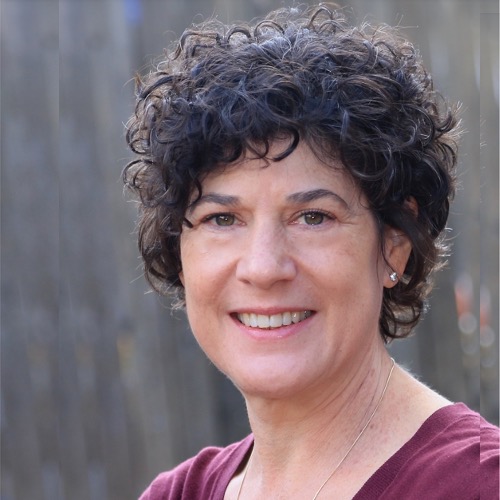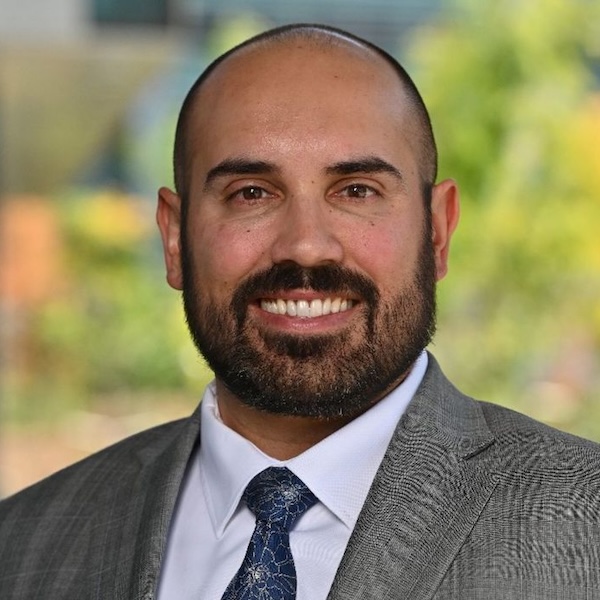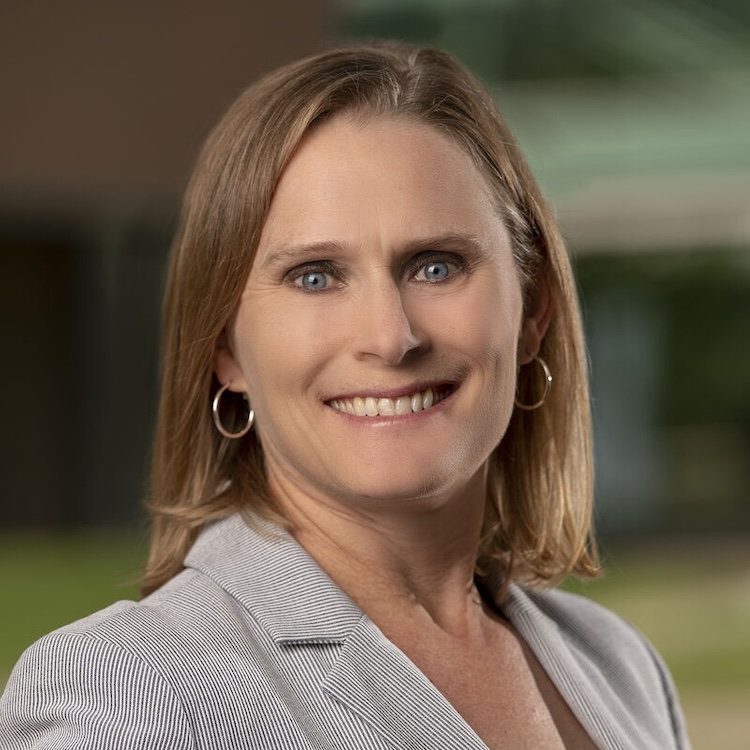
April 2025 Research Bulletin
Volume 6, Issue 2

Dear Research Colleagues,
As we continue to experience this period of ongoing uncertainty, I know that all of us are working to find the best way to continue to pursue our research mission. The campus leadership is working closely with our CU system federal relations and legal teams to understand the implications of the federal transition on our research and the most appropriate next steps.
Last month, we hosted a virtual town hall for researchers, which had about 350 people in attendance. Although we weren’t able to address every question that was submitted during the town hall, we’ve been reviewing all the submitted questions and incorporating the answers into updated content and FAQs on the OVCR’s Federal Transition Updates for Researchers website.
This website also contains the link to the CU Anschutz Federal Transition Inquiry Form. To date, we have received around 100 form submissions from you. Please continue to keep us up to date with developments with your research, your questions, documents you receive from federal sponsors, etc. and know that we are working hard to respond individually to each of your form submissions.
Also, please join us for the next virtual town hall for researchers on Wednesday, April 16, 7:30 – 8 a.m.
Thank you for all that you do to support the research mission at the university.
Sincerely,
Thomas Flaig, MD
Vice Chancellor for Research



Policies regarding minors in the lab
With the approach of summer, many of us will be contacted by high school students about working in the lab. For liability reasons, it is important that researchers are aware of the guidelines and restrictions for hosting individuals under the age of 18 years old on campus. CU Anschutz has established the Child Protection and Minors on Campus webpage that outlines these policies and has links to the necessary paperwork and training requirements. This website is continually updated to assist you with this process. You can also email James Speed for additional information.

COLORADO CLINICAL AND TRANSLATIONAL SCIENCES INSTITUTE (CCTSI)
Ron Sokol, MD
Assistant Vice Chancellor, CCTSI
Educational, round-table and fellowship opportunities at the CCTSI
At the CCTSI, we train clinical translational scientists to become independent researchers and leaders. Central to our educational offerings is the Pre-K Grant Review program. If you are a postdoctoral fellow or junior faculty looking to submit a K application, CCTSI’s Pre-K Grant Review Program can help you increase your funding success. The program includes mock grant reviews and offers expert advice in writing mentor letters, career development plans and specific aims. The letter of intent (LOI) is due April 14, so submit your application today.
CCTSI leadership news
After nearly 40 years of impactful research in geriatrics and integrative physiology, Distinguished Professor Wendy Kohrt, PhD, is stepping away from her leadership role at the CCTSI. Janine Higgins, PhD, will carry her work forward as Director for Resources and Services, assisted by Kevin Messacar, MD, as Associate Director for Resources and Services. Since 2013, Dr. Kohrt has guided clinical researchers through complex processes and advocated for early career investigators. She has led studies that improve lives, especially for older adults. Her dedication has made the Clinical Translational Research Center (CTRC) a premier research destination. Learn more about her impactful career.

CLINICAL RESEARCH OPERATIONS
Ben Echalier, MS, MBA
Assistant Vice Chancellor, Clinical Research Operations
Revamped website connects participants with research studies
We’re thrilled to announce that the CU Anschutz Research Studies Website has undergone a major makeover! The new website makes it easier than ever for people to find and participate in groundbreaking research that improves lives. What’s New?
- Improved Search Functionality – Easily find studies by keyword with over 100,000 additional search words added.
- Dedicated ‘Find a Research Study’ Page – Look for a study on our new dedicated page where you can filter results by category, age group, compensation and more.
- Clearer Website Navigation – Effortlessly find the information you need with a revamped home page and clearly labeled navigation tabs.
- Studies Looking for Healthy Volunteers – Find opportunities for people who want to contribute to research, even without a medical condition.
- Educational Information for Community Members – Take advantage of information explaining how clinical research works as a resource for your participants.
- New Research Teams Page – Review our “how-tos” and guidance documents when you have questions about using the website or updating your study webpage.
Recruit participants through our dedicated research studies recruitment newsletter
We’re also accepting submissions for the Study Spotlight Newsletter. This bi-monthly email newsletter is received by over 17,000 people and highlights research studies that are currently recruiting people for research at CU Anschutz Medical Campus. Want to have your study included in the next Study Spotlight Newsletter? Submit your study today and connect with potential people who are eager to contribute to meaningful research.
Next Clinical Research Connections to focus on Findings from Recent Clinical Research Workforce Development Survey
Are you engaged in clinical research? Get involved at our Clinical Research Connections forum, where we provide the latest updates and valuable information in a focused format.
The agenda includes a presentation on the findings of the recent Clinical Research Workforce Development survey and additional updates from various offices within clinical research administration.

Update regarding applications with foreign components
Recently, our campus observed a change in review of the Foreign Component in NIH applications, with several applications being rejected for not having the Foreign Justification document uploaded at proposal stage. We have confirmed that this is the case at other institutions as well.
Including the Foreign Justification document has always been a requirement of the application, but in the past, the absence of this document was not a reason for proposal rejection. If needed, it was requested as a just-in-time document.
Because of this change it is vital that any foreign component be identified and the required documents be uploaded at the proposal stage. Unfortunately, neither NIH ASSIST nor InfoEd will alert you regarding this requirement. Please update any internal checklists that are utilized when completing a proposal.
Reminders related to federal transition activity
Sponsor Notifications: Please continue to submit sponsor communications to the Office of Grants and Contracts (OGC) via the CU Anschutz Federal Transition Inquiry Form. OGC is tracking these orders and providing updates to our campus Executive Leadership. These notifications can also include:
- Stop Work Orders: These are notifications that work should pause until further notice. Some of these work orders have been rescinded and some have moved to termination. Some of these notices will require a response within 30 days. Please submit stop work orders to OGC as soon as you receive them so we can assist you with any required communication.
- Grant/Contract Termination Notifications: If your award receives an early termination, OGC will reach out to discuss next steps and/or coordinate with other offices when applicable.
- Changes to Awards: Please continue to submit your communications/requests to us for review to adjust current awards (either with or without a budget change). OGC will work with you on those changes and processes required.
Attestation Requests: If you receive an attestation request, a grant-specific questionnaire or any other direct request from a federal sponsor, including but not limited to any attestation regarding DEI, gender ideology or gender affirming care, these inquiries are considered legal terms and conditions and require an institutional authority (AOR Authorized Organization Representative) to attest and submit on behalf of the university. This is typically done at the time of submission by the OGC.
If you receive an email from the NIH with a request for you to sign an attestation or other document related to your proposal and/or award, please submit it to us via our online form as soon as possible and do not respond to NIH. OGC will work with NIH to provide the campus attestation as required by NIH policy.

LABORATORY ANIMAL RESOURCES
Jori Leszczynski, DVN, DACLAM
Assistant Vice Chancellor, Office of Laboratory Animal Resources
Celebrate BRAD with OLAR
For our 6th annual celebration of Biomedical Research Awareness Day (BRAD), OLAR invites you to a watch party for the globally broadcast BRAD 2025 Webinar. All are welcome, and no RSVP is required. Free lunch, swag and raffle for gift cards.
Tue, April 29 | 12-1 PM | Research 2, Krugman Hall
Presenter: Deborah Fuller, PhD, Professor, Department of Microbiology, University of Washington School of Medicine
This talk will focus on how animals are essential to our goal to develop new products that can prevent future epidemics and pandemics. We will also talk about the emergence of Valley Fever, a serious fungal disease that is rapidly spreading and how one small colony of animals in the Southwest United States may hold the key to developing a preventative that can protect humans and their pets. These studies highlight the critical role of animals in research.

Effective April 7: Human Subjects Research Portal and sIND/sIDE Portal Update
Effective April 7, 2025, the Human Subjects Research (HSR) Portal will be updated to accommodate different types of submissions. To improve flexibility and streamline the submission process, we have added a new question to better categorize project types. This update ensures that non-Human Subjects Research submissions require only the most relevant questions. When submitting:
- If your project is a single-patient IND or IDE, select “Expanded Access Protocol (single patient, intermediate, treatment).”
- If your project requires an HSR Portal Clearance letter for submission to COMIRB for a QI determination, select “This is being submitted for a COMIRB decision of QI vs. HSR.”
This update replaces the existing sIND/sIDE portal. Submit to the Human Subjects Research Portal here.
Faster IRB reliances turnaround in the months ahead
COMIRB is restructuring so we can be more efficient about getting IRB reliances in place with external IRBs, and more efficient in obtaining IRB reliances from other institutions who are using COMIRB. We expect you will see a faster turnaround in the months ahead.

RESEARCH DEVELOPMENT AND STRATEGY
Laura Buccini, DrPH, MPH, MA
Assistant Vice Chancellor, Research Development and Strategy
NIH special emphasis study section meetings starting to resume
The federal transition has slowed proposal review processes at the National Institutes of Health (NIH) and other federal agencies. In mid-March it was announced that NIH special emphasis study section meetings for several NIH institutes are starting to resume. This is an indicator that full Advisory Council meetings, which occur after study section meetings and are where final funding decisions are discussed and made, may soon be scheduled to resume, as well. Many Advisory Council meetings had previously been scheduled to meet in late April and May. Stay up to date on NIH review meeting dates through the Federal Register.
Reminder: AI in NIH Grant Writing and Peer Review
Grant Writing: While there is no National Institutes of Health (NIH) policy against the use of artificial intelligence (AI) tools for the grant writing process itself, NIH strongly cautions that authors use AI tools at their own risk. When using AI tools, PIs should be aware of the potential for plagiarism, fabricated citations and falsified information that may work its way into the application through the use of AI. If this type of research misconduct occurs, NIH will take steps to address non-compliance according to the NIH Research Misconduct policy. See NOT-OD-23-149 FAQs for more info. You can find the latest NIH policy considerations and guidance about AI in research: NIH Office of Science Policy website.
Additionally, please review the list of approved AI tools for use by university employees.
Peer Review: NIH takes a firm stance against the use of Artificial Intelligence (AI) tools for analyzing and formulating peer review critiques for grant applications and contract proposals. See NOT-OD-23-149.

2025 International Laboratory Freezer Challenge: CU Anschutz vs. CU Boulder
Laboratory fridges and freezers are essential for scientific discovery and the betterment of human health—but your Ultra Low-temperature freezer could consume the same amount of energy each day as a house! CU Anschutz is proud to participate in the 2025 International Laboratory Freezer Challenge. Through the Freezer Challenge, your lab’s cold storage can be optimized for better sample access, sample integrity, reduced costs and energy savings. This year CU Anschutz is competing with CU Boulder to see who can earn the most points.
Help Us Beat Bolder
The Research Bulletin shares timely news and announcements from the Office of the Vice Chancellor for Research.
Email [email protected] with content submissions for future editions.